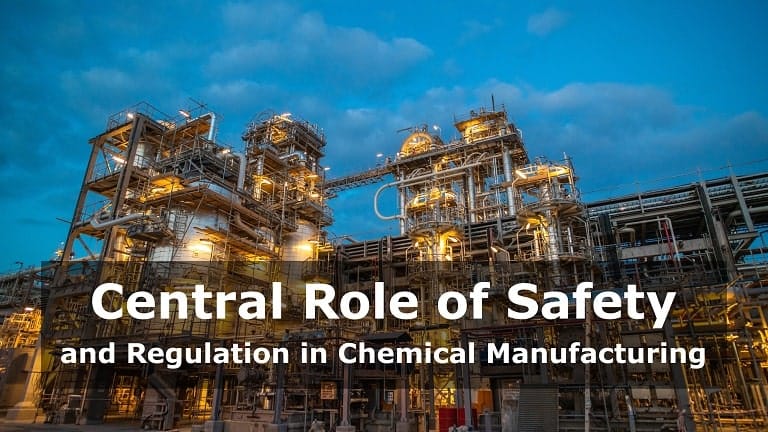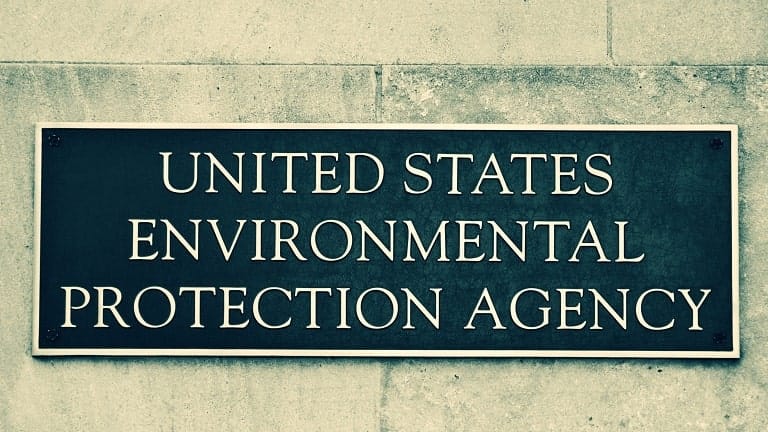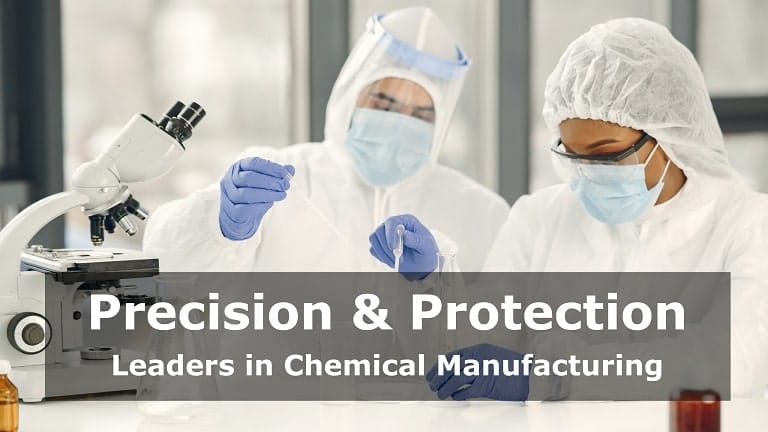- The Central Role of Safety and Regulation in Chemical Manufacturing
- Why Process Safety Management (PSM) Demands Executive-Level Leadership
- The Value of Deep Chemical Engineering Expertise in Leadership Roles
- What Makes a Great Chemical Manufacturing Executive? Traits and Skills to Prioritize
- How Specialized Recruiters Fill the Leadership Gap in Chemical Manufacturing
- Frequently Asked Questions (FAQs)
- Conclusion
In the high-stakes world of chemical manufacturing, leadership is more than strategy and oversight—it’s a matter of safety, compliance, and deep technical understanding. From managing hazardous materials to navigating a strict regulatory landscape shaped by agencies like OSHA and the EPA, this industry demands executives who can lead with both vision and vigilance. A single misstep can result in catastrophic incidents, environmental damage, and lasting reputational harm.
According to the U.S. Chemical Safety Board (CSB), there are hundreds of reportable chemical incidents annually, many of which result in significant injuries, fatalities, and financial loss. OSHA has also reported that non-compliance with safety standards costs businesses billions of dollars each year in fines, litigation, and operational disruption. These figures underscore the critical need for leadership that understands the real-world consequences of lapses in safety and regulation.
This article explores the unique challenges of executive hiring in chemical manufacturing, focusing on the vital role of safety and regulation, the necessity for deep chemical engineering expertise, and the traits that define exceptional leaders in this field. It also highlights how chemical manufacturing executive recruiters serve as strategic partners in bridging the leadership gap and securing talent equipped for this complex industry.
The Central Role of Safety and Regulation in Chemical Manufacturing

In chemical manufacturing, safety is not a box to check—it is the backbone of every process, decision, and leadership hire. The inherent risks of the industry are considerable: toxic exposure, flammable reactions, environmental contamination, and the potential for catastrophic incidents that endanger both human lives and surrounding communities. Given these risks, regulatory compliance isn’t optional—it’s essential for survival.
This is why regulatory oversight is rigorous. In the United States, the Occupational Safety and Health Administration (OSHA) enforces the Process Safety Management (PSM) standard, which outlines a framework to prevent the release of hazardous chemicals. The Environmental Protection Agency (EPA) adds another layer of accountability with environmental risk assessments and hazardous substance reporting requirements. On a global level, frameworks like REACH (Registration, Evaluation, Authorization and Restriction of Chemicals) in the European Union are in place to ensure chemical safety throughout a product’s lifecycle.

For executive leaders in this space, understanding and prioritizing these regulations isn’t just part of the job—it is the job. An executive who lacks fluency in compliance protocols, risk management, and regulatory expectations poses a direct threat to operational integrity. Leaders must not only enforce safety standards but foster a culture where safety and environmental stewardship are non-negotiable values across all departments.
The consequences of missteps can be devastating. Consider the 2019 explosion at a chemical plant in Port Neches, Texas, which caused over $100 million in damage and displaced thousands of residents. Investigations revealed lapses in safety management and compliance—failures that trace back to leadership. This is just one of many examples demonstrating that safety must be embedded at the executive level.
In this high-stakes environment, chemical manufacturing executive recruiters must prioritize candidates with a deep understanding of safety protocols, regulatory frameworks, and a proven ability to lead with accountability. Only such leadership can ensure both legal compliance and long-term operational resilience.
Why Process Safety Management (PSM) Demands Executive-Level Leadership

Process Safety Management (PSM) is a critical framework established by OSHA to prevent the unintentional release of hazardous chemicals that can lead to fires, explosions, and toxic exposure. At its core, PSM is about managing the integrity of operating systems and processes that handle highly hazardous chemicals. It includes everything from hazard analysis and mechanical integrity to emergency response and employee training. While much of the execution of PSM takes place on the plant floor, the responsibility for its success begins at the top—with executive leadership.
Effective PSM cannot thrive in a vacuum or be treated as a compliance-only initiative. It requires executive-level commitment, strategy, and investment. When leaders view safety as a value—not just a rule—companies develop stronger safety cultures, reduce incidents, and boost operational stability. This cultural tone must be set by the C-suite, where priorities are defined and resources are allocated.
Executive leaders play a pivotal role in embedding PSM into the organization’s DNA. Their decisions shape how seriously safety is taken across departments. For example, allocating budgets for hazard and operability studies (HAZOP), investing in predictive maintenance tools, or updating outdated infrastructure directly impacts the effectiveness of PSM. Similarly, ensuring emergency preparedness—including simulations, response plans, and inter-departmental coordination—relies on a leadership team that understands both the risks and the remedies.
Moreover, executives must hold teams accountable while also being willing to listen to safety concerns raised from the ground up. This open-loop communication encourages proactive identification and mitigation of risks before they become incidents.
In high-risk environments like chemical manufacturing, leadership that fails to prioritize PSM invites disaster—both operationally and reputationally. That’s why chemical manufacturing executive recruiters seek candidates who are not only technically proficient but have demonstrated a consistent commitment to safety-led leadership. When lives, assets, and the environment are on the line, only visionary leaders with deep PSM knowledge can be trusted at the helm.
The Value of Deep Chemical Engineering Expertise in Leadership Roles
In chemical manufacturing, executive leadership requires far more than general business acumen—it demands deep technical expertise, particularly in chemical engineering. Unlike other sectors where management skills may outweigh subject matter knowledge, chemical manufacturing operates in a highly specialized, regulated, and technically complex environment where the cost of error is immense. For this reason, hiring executives without a robust chemical engineering background is not only risky—it’s irresponsible.
Understanding the chemical processes involved in production enables executives to make informed, strategic decisions that impact everything from plant design and operational efficiency to environmental compliance and innovation. Leaders who grasp the science behind their processes can more accurately assess risks, implement meaningful process improvements, and guide R&D efforts with foresight. This expertise is essential when dealing with matters like thermal reactions, hazardous material handling, process optimization, and regulatory audits.
Moreover, technical fluency allows executives to engage credibly with engineers, plant managers, safety officers, and regulatory bodies. They can ask the right questions, understand technical limitations, and translate complex process data into strategic business actions. When process failures occur—or better yet, are predicted and prevented—this level of leadership becomes the organization’s most valuable safeguard.
Top-tier chemical manufacturing executive recruiters know that the ideal candidate often holds a PhD or master’s degree in chemical engineering, is a licensed Professional Engineer (PE), and has decades of industry experience, ideally rising through technical and operational roles before stepping into executive leadership. These candidates not only understand plant-level challenges but also bring a systems-thinking approach to business growth and innovation.
Ultimately, in an industry governed by science, expertise is non-negotiable. It’s the foundation upon which safe, sustainable, and profitable operations are built. Companies looking to secure their future must prioritize leaders who combine strategic vision with technical depth—those who can both engineer processes and engineer progress.
What Makes a Great Chemical Manufacturing Executive? Traits and Skills to Prioritize
The best executives in chemical manufacturing are a hybrid of technical expert and transformational leader. Their decisions are guided by both data and principle. They think analytically, act decisively in crises, and communicate across the technical-business divide.
Key traits include:
Analytical thinking for data-driven decisions
Crisis management in high-pressure scenarios
Cross-functional communication to align teams
PSM and regulatory fluency for safety enforcement
Operational oversight rooted in hands-on experience
Chemical manufacturing executive recruiters assess not just experience, but mindset. They look for candidates who demonstrate accountability, ethical leadership, and a commitment to continuous learning. The right hire isn’t just technically capable—they lead by example and elevate safety and performance across the organization.
How Specialized Recruiters Fill the Leadership Gap in Chemical Manufacturing
Recruiting for executive roles in chemical manufacturing is unlike talent searches in most other industries. The combination of technical complexity, safety-critical operations, and strict regulatory oversight makes this space highly specialized—and the leadership gap even more pronounced. This is where chemical manufacturing executive recruiters bring immense value. Their niche focus allows them to identify, vet, and place leaders with the rare blend of skills and experience required to succeed in this demanding field.
Unlike generalist recruiters, specialized executive search firms understand the intricate demands of chemical manufacturing. They speak the language of PSM (Process Safety Management), EPA compliance, OSHA standards, and chemical process engineering. Their industry alignment ensures they’re not just matching resumes to job descriptions—they’re aligning business goals with leaders who can uphold safety, drive innovation, and manage risk across complex operations.
The recruitment process goes far beyond basic qualifications. Specialized recruiters perform technical vetting to confirm that candidates possess real-world expertise, often through structured interviews with subject matter experts. They evaluate not just experience, but mindset—especially a safety-first leadership philosophy that prioritizes people and processes over shortcuts or unchecked growth.
Trust is key in this niche. Great recruiters take time to build relationships with both clients and candidates. They understand a company’s unique operational challenges, culture, and strategic vision. With candidates, they build rapport to assess leadership style, ethical decision-making, and long-term fit. Because of these relationships, recruiters often have access to a pool of passive candidates—top-tier executives who aren’t actively job-hunting but may be open to the right opportunity.
Hiring the wrong executive in chemical manufacturing can result in costly compliance failures, operational shutdowns, or worse—safety incidents that damage lives and reputations. That’s why partnering with experienced chemical manufacturing executive recruiters is not just helpful—it’s essential. Their focused expertise dramatically reduces hiring risk and ensures companies are led by professionals equipped to navigate the industry’s high-stakes landscape with precision and integrity.
Frequently Asked Questions (FAQs)
Q1. Why is safety paramount in chemical manufacturing leadership?
Because of the high-risk nature of handling hazardous chemicals, leadership must ensure safety to protect lives, prevent environmental harm, and maintain compliance with strict regulations like OSHA’s PSM standards.
Q2. What is Process Safety Management (PSM), and why is it crucial for executives?
PSM is a regulatory framework that helps prevent the release of hazardous chemicals. Executives must drive its implementation and fund the systems and culture required to sustain it.
Q3. Why is a chemical engineering background important for leaders in this industry?
Chemical engineering knowledge enables informed decisions about operations, risk mitigation, and process improvements—skills that are essential for both safety and innovation.
Q4. What key traits define a successful chemical manufacturing executive?
Traits like analytical thinking, crisis management, strong communication, technical fluency, and a safety-first mindset are essential for success in this high-risk sector.
Q5. How do specialized recruiters help in hiring for chemical manufacturing roles?
They provide industry-specific expertise, evaluate candidates for technical and leadership capabilities, and access top-tier talent through vetted networks and passive candidate pools.
Q6. What are the risks of a bad hire in chemical manufacturing?
A poor executive hire can lead to safety incidents, regulatory fines, plant shutdowns, and reputational damage—making expert recruitment critical to operational integrity.
Conclusion
In chemical manufacturing, the margin for error is razor-thin—and the role of executive leadership is pivotal. From enforcing rigorous safety standards to navigating evolving regulatory demands and overseeing technically complex operations, the ideal executive must lead with both competence and caution. This is a niche where expertise is non-negotiable, and where the wrong hire can have dire consequences.
That’s why companies turn to specialized chemical manufacturing executive recruiters—professionals who understand the industry’s unique pressures and are equipped to identify leaders with the skills, mindset, and technical mastery to thrive. In an environment where safety, regulation, and innovation intersect, the right executive is not just a leader—they’re a safeguard for your organization’s future. To find these indispensable leaders for your team, explore our specialized Manufacturing Executive Search Services.


